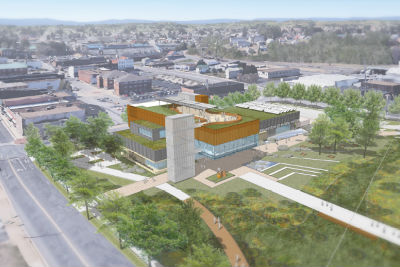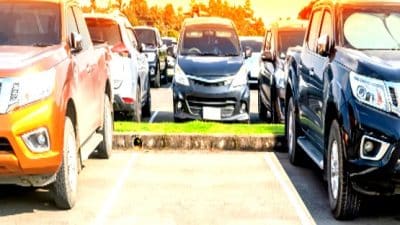By Rebecca J. Barnabi
For Augusta Free Press

WAYNESBORO — In a land not so far away, but a time before a world-wide pandemic, discussion began for a branch of the Virginia Museum of Natural History in the River City.
“So, a year ago at this point, [the museum] got put into the state budget [as part of capital improvement projects],” said Greg Hitchin, Waynesboro’s director of economic development and tourism.
Despite the COVID-19 pandemic, Hitchin said the museum remains in the state budget, but on hold until funds are ready.
“So, at this point, it is 100 percent based on when the state puts money back into that line item [of the state budget],” Hitchin said.
And when is difficult to determine right now because of the pandemic.
When the line item for the museum returns, plans can resume for Waynesboro’s branch of the museum.
“We’re pretty confident we’ll be able to start moving forward in fiscal ’23,” Hitchin said.
Plans are already prepared for the two-story, 25,000-square-foot museum at what is currently a parking lot at Main Street and Arch Avenue in downtown Waynesboro, near the city’s Greenway.
A summer 2025 opening is hopeful.
The plans for the museum are available on the city’s web site.
“It’s extremely beneficial on multiple fronts,” Hitchin said of the museum for the River City.
A branch of the museum in Waynesboro would provide an educational component for residents, visitors and local students.
The museum would also become another tourist attraction, give visitors a reason to come to the city for the museum, then open their eyes to other tourist attractions in Waynesboro.
“The state considers this a higher education campus,” Hitchin said of the museum’s educational potential, while also becoming a “great addition to the downtown area and the city and the region.”
Dr. Joe Keiper is executive director of the Virginia Museum of Natural History in Martinsville.
“It’s basically adding another building to our campus,” Keiper said of Waynesboro’s branch.
According to Keiper, a pre-planning study was complete for the Waynesboro branch a year ago. The state provided $250,000 for pre-planning of the museum.
“Basically, due to COVID-related expenses, the state put capital projects on hold,” Keiper said.
State funds were “reallocated to support the fight against COVID,” and until the pandemic ends, most capital projects, including Waynesboro’s branch of the museum, will continue not to receive funding.
Keiper said that in January 2022, Waynesboro’s museum branch will hopefully regain funding in the state budget, and funds will be available July 2022.
“We’re still in the budget. We’re a line item in the budget,” Keiper said.
Keiper agreed with Hitchin about a summer 2025 opening.
“It would be nice,” he said.
But the next phase for the museum branch in the River City is detailed planning, which requires the presentation of documents for the construction of the museum branch to potential architects.
Keiper said that construction of Waynesboro’s museum branch would probably take less than two years.
Keiper said he hopes everyone is able to remain patient for the museum in Waynesboro.
“The people of Waynesboro [city officials and the Center for Coldwaters Restoration] have just been instrumental in bringing the museum [to the city],” Keiper said.










